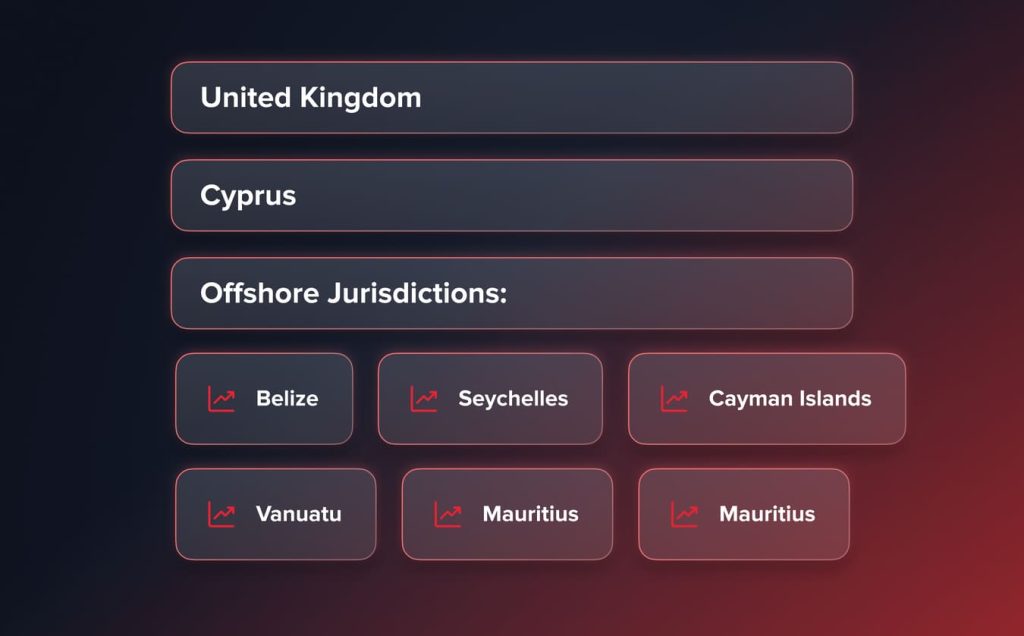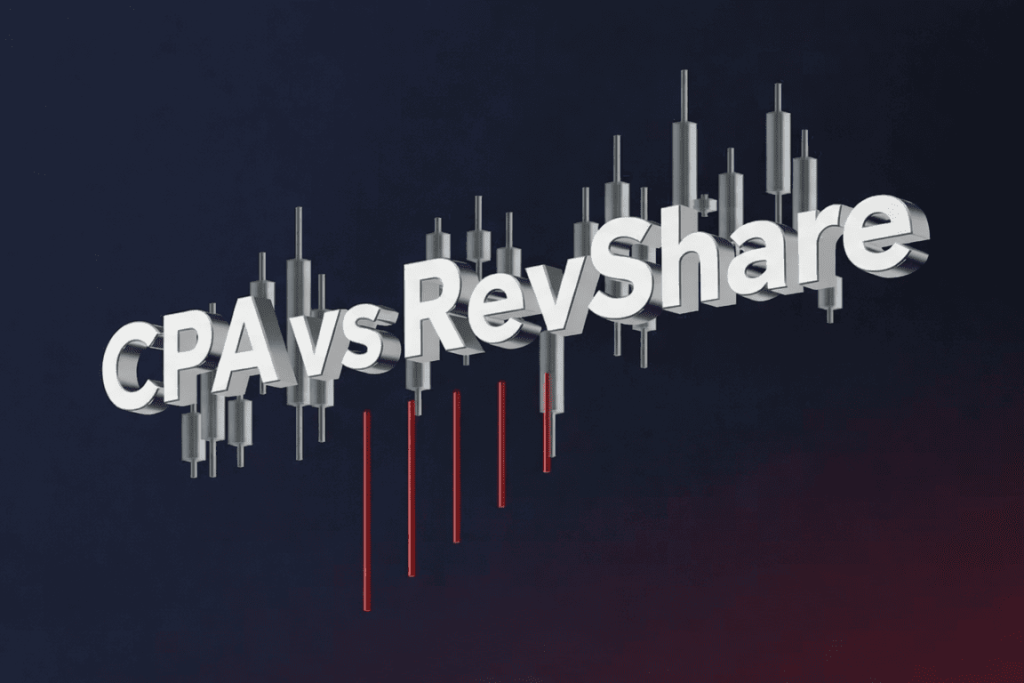
¿Cómo obtener una licencia de corretaje y dónde solicitarla?
Contenidos
Abrir una firma de corretaje es una tarea enorme. No se trata solo de tener una aplicación de trading elegante o una estrategia de marketing sólida; se trata de navegar por una compleja red de obstáculos legales y regulaciones globales. Si deseas manejar el dinero de los clientes y negociar acciones, Forex o commodities, necesitas una licencia de corretaje.
Piense en esta licencia como su "prueba de entrada". Le dice a sus clientes, su banco y el gobierno que ha sido verificado y que está comprometido a proteger los fondos de los inversores. Aunque el proceso puede parecer abrumador, desglosarlo en pasos manejables hace que la montaña sea mucho más fácil de escalar.
Pasos para Obtener una Licencia de Correduría
- Determine la Estructura de Su Negocio
- Elige la Jurisdicción Apropiada
- Cumplir con los requisitos de capital
- Preparar la documentación necesaria
- Cumplir con los criterios de "Ajustado y Apropiado"
- Enviar la Solicitud
- Pasar por Revisión Regulatoria
- Obtener la Licencia
1. Determina la Estructura de Tu Negocio
Antes de hablar con un regulador, necesitas decidir qué tipo de "persona jurídica" será tu negocio. Esta elección no es solo un trámite; dicta cuánto impuesto pagas, quién es responsable si el negocio fracasa y cómo puedes recaudar dinero más adelante.
Las opciones más comunes son Corporaciones y Compañías de Responsabilidad Limitada (LLCs).
- Corporaciones: Excelentes para recaudar capital de riesgo o salir a bolsa, pero a menudo vienen con "doble imposición" sobre los dividendos.
- LLCs: Populares para equipos más pequeños y ágiles. Ofrecen una tributación de "paso a través", donde las ganancias se gravan como ingresos personales, simplificando la factura fiscal.
Perspectiva de Expertos: "No solo mires los beneficios fiscales. Piensa en tu estrategia de salida. Si planeas vender la correduría o incorporar socios institucionales, una estructura Corporativa es casi siempre preferida porque facilita la transferencia legal de acciones mucho más que una LLC."
2. Elija la Jurisdicción Apropiada
Esta es tu decisión más crítica. Donde apliques determina tu reputación, costos y qué clientes puedes contratar legalmente.
Tienes que encontrar el "punto dulce" entre Reputación y Accesibilidad. Una licencia del Reino Unido (FCA) es una herramienta de marketing poderosa, pero requiere millones en capital. Una licencia offshore en un lugar como Vanuatu es barata y rápida, pero puede que te resulte más difícil abrir una cuenta bancaria corporativa con una.
3. Cumplir con los Requisitos de Capital
Los reguladores quieren saber que no desaparecerás si el mercado tiene un mal día. Exigen un Requisito Mínimo de Capital – efectivo que debe permanecer en una cuenta bancaria, intocable para gastos diarios como alquiler o salarios.
- Nivel-1 (Reino Unido/EE.UU.): Puede requerir entre $125,000 y $20 millones.
- Offshore (Seychelles/Mauritius): A menudo varía de $25,000 a $50,000. Debe proporcionar estados financieros auditados que demuestren que este dinero es suyo y proviene de fuentes legales.
4. Prepare la Documentación Necesaria
Este es el punto donde la mayoría de las personas se estancan. Debes demostrar que eres una empresa profesional, no solo "un tipo con un sitio web." Tu paquete generalmente incluirá:
- Un plan de negocio de 3 a 5 años: Detallando proyecciones y modelos de ingresos.
- Políticas de AML/KYC: Protocolos estrictos para verificar las identidades de los clientes y detectar el lavado de dinero.
- Política de Gestión de Riesgos: Cómo manejas la volatilidad del mercado y las amenazas cibernéticas.
Perspectiva de Expertos: "Los reguladores pueden detectar un manual 'plantillado' a kilómetros de distancia. Si tu política de AML parece un trabajo de copiar y pegar de internet, te rechazarán. Adapta tus manuales a tu tecnología específica y mercado objetivo para demostrar que realmente entiendes los riesgos."
También te puede gustar

5. Cumplir con los criterios de "Ajuste y Aptitud"
Una correduría es tan confiable como las personas que la dirigen. Los reguladores realizarán exhaustivas verificaciones de antecedentes sobre los directores y propietarios, buscando:
Solvencia Financiera: Verifican los puntajes de crédito personal para asegurarse de que los propietarios no estén bajo una presión financiera extrema.
Integridad: Registros criminales limpios y sin antecedentes de fraude financiero.
Competencia: Un historial comprobado en finanzas. Si su liderazgo no tiene experiencia en la industria, es probable que se le niegue la licencia.
6. Enviar la Solicitud
Una vez que tengas tu montaña de papeleo, es hora de presentar. Pero esto no es tan simple como presionar "enviar" en un correo electrónico. La mayoría de los reguladores ahora utilizan portales en línea sofisticados (como el portal Connect en el Reino Unido) que requieren que subas documentos en un orden muy específico.
Designando a Su Persona de Contacto: Necesitará nombrar a un "Usuario Principal" o "Oficial de Cumplimiento" que será el único contacto del regulador. Esta persona debe ser increíblemente organizada porque el regulador esperará respuestas inmediatas una vez que comience el reloj.
El "Pulido Final": Antes de enviar, haz que un consultor externo o un equipo legal realice una "auditoría simulada." Ellos buscarán las pequeñas cosas que provocan un rechazo automático: una identificación que expira en dos semanas, un extracto bancario que tiene 91 días (cuando el límite es 90), o una firma de testigo faltante en una escritura.
La tarifa de inscripción no reembolsable: Se le requerirá que pague una tarifa de solicitud por adelantado. No son baratas; dependiendo del país, pueden variar desde $2,500 hasta $25,000+. Si su solicitud es rechazada porque olvidó un documento, generalmente no recupera este dinero.
7. Sometase a Revisión Regulatoria
Esta es la fase de "sala de espera", y a menudo es la parte más estresante. Durante las primeras semanas, el regulador solo verificará si su solicitud está "completa." Una vez que confirmen que no falta ninguna página, comienza la verdadera "Inquisición".
El Ciclo de Aclaración: Espere recibir solicitudes al estilo de "Sección 166" (o el equivalente local). Estas son cartas formales pidiendo más información.
La Inmersión Profunda: Se le asignará un oficial de casos dedicado. Ellos examinarán su plan de negocios para ver si sus proyecciones de ganancias son realistas o si está siendo demasiado "optimista". Ellos revisarán sus "Vínculos Cercanos" – esencialmente verificando si alguno de sus socios comerciales o empresas matrices tiene un pasado dudoso.
La Entrevista de Gestión: En muchas jurisdicciones, el regulador convocará a sus Directores y al Oficial de Cumplimiento para una entrevista. No preguntarán sobre su marketing; harán preguntas difíciles sobre mitigación de riesgos y conflicto de intereses. Quieren ver si su equipo realmente entiende los manuales que presentó o si simplemente contrató a un consultor para que los escribiera por usted.
Perspectiva de Expertos: "La velocidad es tu mejor amiga aquí. Si un regulador pide una aclaración un viernes, intenta tener una respuesta detallada y profesional en su escritorio para el lunes por la mañana. Esto les muestra que estás listo, dispuesto y organizado, lo que construye la confianza necesaria para una decisión favorable."
8. Obtener la Licencia
Si has llegado hasta aquí, ¡felicitaciones! Recibirás una carta que dice que estás "Dispuesto a Aprobar" o que has recibido "Aprobación Condicional." Sin embargo, no se te permite comerciar todavía.
- Los Últimos Obstáculos: La mayoría de las licencias se otorgan con la condición de que completes algunas tareas de "Día 1". Esto generalmente incluye:
- Seguro de Responsabilidad Profesional (PII): Debes mostrar un certificado de seguro que proteja a tus clientes contra errores profesionales.
- Contratación: Es posible que necesites demostrar que realmente has contratado al personal local que prometiste en tu plan de negocios.
- Pruebas del Sistema: Es posible que necesites proporcionar un informe final que muestre que tu plataforma de trading es segura y puede manejar el volumen esperado sin fallar.
- Haciendo en Vivo: Una vez que cumplas con estas condiciones, recibirás tu número de Registro de Servicios Financieros. Luego podrás activar tu sitio web, lanzar tu marketing y comenzar a aceptar depósitos de clientes legalmente.
Perspectiva de experto: "El día que obtienes tu licencia es en realidad cuando comienza el trabajo real. Muchos corredores cometen el error de relajarse una vez que tienen el permiso. Sin embargo, los reguladores a menudo realizan un 'chequeo posterior a la concesión de la licencia' dentro de los primeros seis meses para asegurarse de que realmente estás cumpliendo con las políticas de AML y KYC de alta tecnología que prometiste durante la solicitud."
Jurisdicciones Populares para Licencias de Corretaje

| Jurisdicción | Regulador | Capital Aprox. | Tiempo de Configuración | Reputación |
| Reino Unido | FCA | $125k - $1M+ | 12+ Meses | Élite |
| Chipre | CySEC | $50k - $730k | 6-12 Meses | Alta (Acceso UE) |
| Islas Mauricio | FSC | $25k | 4-6 Meses | Moderada |
| Islas Seychelles | FSA | $50k | 3-5 Meses | Básica (Offshore) |
| Vanuatu | VFSC | $50k | 2-3 Meses | Entrada |
Diferentes países ofrecen diferentes "sabores" de regulación. Aquí hay un desglose de dónde la mayoría de los corredores eligen establecerse.
Reino Unido (FCA)
La Autoridad de Conducta Financiera (FCA) es el "estándar de oro".
- Los Pros: Reputación inigualable. Si estás regulado por la FCA, los bancos y socios más grandes del mundo querrán trabajar contigo.
- Los contras: Es increíblemente caro y el papeleo es una pesadilla. Desde el Brexit, una licencia de la FCA ya no te permite servir fácilmente a clientes en la Unión Europea.
Chipre (CySEC)
Chipre es el "Centro de Forex del Mundo."
- Los Pros: Porque Chipre está en la UE, una licencia de CySEC te permite "pasar" tus servicios a los 27 Estados miembros de la UE. Es una jugada masiva de acceso al mercado.
- Contras: Debido a que hay tantos corredores, el regulador se ha vuelto mucho más estricto en los últimos años para mantener su posición con el resto de Europa.
Jurisdicciones Offshore
Para muchas startups, "Offshore" es el camino más realista. Estas jurisdicciones ofrecen un equilibrio entre costos más bajos y tiempos de configuración más rápidos.
Islas Mauricio (FSC): Un sólido punto intermedio. Tiene un sistema legal robusto basado en la ley inglesa y es una excelente puerta de entrada para los corredores que buscan dirigirse a los mercados africano o asiático.
Belice (IFSC): Conocido por ser muy accesible. El proceso de solicitud es relativamente rápido y los requisitos de capital son manejables para un nuevo negocio.
Seychelles (FSA): Un gran favorito para los corredores internacionales. Ofrece un entorno muy favorable en términos fiscales y no requiere una gran presencia física local.
Islas Caimán (CIMA): Esta es la opción offshore "de alta gama". Es más cara que las Seychelles, pero tiene un nivel de respeto mucho más alto entre los inversores institucionales.
Vanuatu (VFSC): A menudo es el lugar más rápido para obtener una licencia. Es una opción popular para los corredores que desean llegar al mercado rápidamente mientras mantienen un estatus legal y regulado.
También te puede gustar

Costos Estimados y Planificación Financiera
El costo de obtener una licencia de corretaje varía significativamente según la jurisdicción y la complejidad de la licencia (por ejemplo, Market Maker vs. STP/Modelo de Agencia). Más allá de los requisitos de capital mínimo, las empresas deben presupuestar para:
- Tarifas de Solicitud: Estas son tarifas gubernamentales no reembolsables. Por ejemplo, a partir del 1 de febrero de 2026, las tarifas de incorporación digital de Companies House del Reino Unido han aumentado a £100, mientras que las tarifas de solicitud regulatoria para la FCA o CySEC pueden variar de $3,000 a $10,000+.
- Infraestructura y Tecnología: Los reguladores modernos ahora requieren prueba de "Resiliencia Operativa." Esto incluye alojamiento seguro, plataformas de trading (como MT5 o software propietario) y sistemas de CRM robustos.
- Personal de Cumplimiento: La mayoría de las jurisdicciones requieren al menos un Oficial de Cumplimiento local y residente o Oficial de Reporte de Lavado de Dinero (MLRO).
- Honorarios Profesionales: Los consultores legales y auditores son esenciales para redactar las proyecciones financieras a 3 años y los manuales internos requeridos para la solicitud.
Consejo profesional: Presupuesta al menos de 6 a 12 meses de margen operativo además de tu capital inicial. Los reguladores a menudo rechazan a las empresas que parecen "subcapitalizadas" para manejar la volatilidad del mercado.
Trampas Comunes: Por Qué las Aplicaciones se Retrasan
A pesar de tener un plan de negocio sólido, muchas aplicaciones se estancan durante la Revisión Regulatoria fase. Evitar estos errores comunes puede ahorrar a su empresa meses de retrasos:
- Documentación Inconsistente: La información en el plan de negocios debe coincidir perfectamente con los detalles proporcionados en los cuestionarios personales para los directores.
- Fuente de Riqueza Opaca: Los reguladores en 2026 son extremadamente estrictos sobre la "Fuente de Fondos" para el capital inicial. La falta de rutas de auditoría claras y verificadas por el banco para la inversión de los fundadores es una de las principales causas de rechazo.
- Débil "Mente y Gestión": El uso de directores "nominados" que no tienen poder real de decisión está siendo cada vez más examinado. Los reguladores quieren ver que la gestión real de la firma se está llevando a cabo dentro de la jurisdicción.
- Políticas AML Genéricas: Los manuales estándar de "copiar y pegar" sobre la Prevención de Lavado de Dinero (AML) a menudo fracasan. Sus políticas deben estar adaptadas a su mercado objetivo específico y clases de activos.
Tendencias Emergentes en la Licencia 2026
El panorama de corretaje se está trasladando hacia Finanzas Digitales y Sostenibilidad. Al postular hoy, considera cómo estas tendencias podrían afectar tu tipo de licencia:
El modelo "Crypto-Híbrido"
Muchas licencias de corretaje tradicionales ahora requieren registros adicionales de "VASP" (Proveedor de Servicios de Activos Virtuales) si tienes la intención de ofrecer criptoactivos. Bajo la regulación de la UE MiCA (Mercados en Criptoactivos) , que estará completamente operativa en 2026, las empresas deben cumplir con criterios específicos de conocimiento y competencia para asesorar sobre activos digitales.
IA y Comercio Algorítmico
Si su correduría utiliza IA para la ejecución de operaciones o la perfilación de clientes, los reguladores como la FCA ahora llevan a cabo "Pruebas en Vivo de IA" para asegurarse de que sus algoritmos no generen inestabilidad en el mercado o sesgos en contra de los consumidores.
Informe ESG
Las divulgaciones de Medio Ambiente, Social y Gobernanza (ESG) están pasando de ser opcionales a obligatorias. Esté preparado para explicar cómo su empresa gestiona los riesgos financieros relacionados con el clima, especialmente si solicita en jurisdicciones de primer nivel como Mauricio o el Reino Unido.
Post-Licenciamiento: La Lista de Verificación de Cumplimiento Continuo
Obtener la licencia es solo el principio. Para mantenerla, debes adherirte a un calendario de informes estricto:
- Auditorías Anuales: Presentación de declaraciones financieras auditadas.
- Informe de Transacciones: Informe en tiempo real o diario de todas las operaciones ejecutadas al regulador.
- Revisiones de idoneidad y competencia: Reevaluación anual de la competencia de los miembros de su junta.
- Informes de Adecuación de Capital: Presentaciones mensuales o trimestrales para demostrar que aún posees la liquidez requerida.
Conclusión
Obtener una licencia de corretaje es una inversión significativa de tiempo y dinero, pero es la única forma de construir una empresa real y escalable en el sector financiero. No apresures el proceso. Comienza eligiendo una jurisdicción que se ajuste a tu presupuesto actual, pero siempre ten un plan de "Nivel Superior". Muchos de los corredores más grandes del mundo comenzaron con una licencia offshore en un lugar como Mauricio y eventualmente crecieron hasta obtener una licencia de la FCA o CySEC una vez que tuvieron los ingresos para respaldarlo.
FAQ
The cost is heavily dependent on the jurisdiction and the "model" of the broker (STP/Agency vs. Market Maker). Offshore (e.g., Vanuatu, Seychelles): Setup costs range from $20,000 to $50,000, with lower capital requirements (around $50,000). Mid-Tier (e.g., Cyprus/CySEC, Mauritius): Expect to spend $70,000 to $150,000 on the application and legal setup, with capital requirements up to €730,000 for full market-making licenses. Top-Tier (e.g., UK/FCA, USA/NFA): These are the most expensive, often exceeding $200,000 in professional fees alone. The US requires a minimum net capital of $20 million.
Yes, but with conditions. Most major regulators require "Mind and Management" to be local. This means while the owners (UBOs) can be foreigners, you must typically have: A physical office in the country. Local resident directors. A local Compliance Officer or MLRO (Money Laundering Reporting Officer).
Timeline expectations vary by the regulator's workload and the quality of your paperwork: Offshore: 3 to 5 months. Cyprus (CySEC): 6 to 10 months. UK (FCA): 6 to 12 months. USA (NFA/CFTC): 12 to 18 months.
This is a critical choice for your business model: STP (Straight Through Processing): You act as an intermediary, sending client trades directly to liquidity providers. Capital requirements are lower (e.g., €125,000 in Cyprus) because you aren't taking the risk of the trade. Market Maker (B-Book): You take the other side of your clients' trades. This requires much higher capital (e.g., €730,000 in Cyprus or £750,000 in the UK) because you must prove you can pay out large client wins.
In 2026, "letterbox" companies are no longer accepted by reputable regulators. Even offshore jurisdictions like the Cayman Islands and Mauritius now enforce Economic Substance laws. This means you must have a physical office space, local employees, and incur local operating expenses to maintain your license.
Not automatically. Most jurisdictions now require a specific VASP (Virtual Asset Service Provider) registration or a "Crypto Asset" add-on to your existing financial license. In the EU, this is strictly governed by the MiCA regulation.
Actualizado:
6 de febrero de 2026





